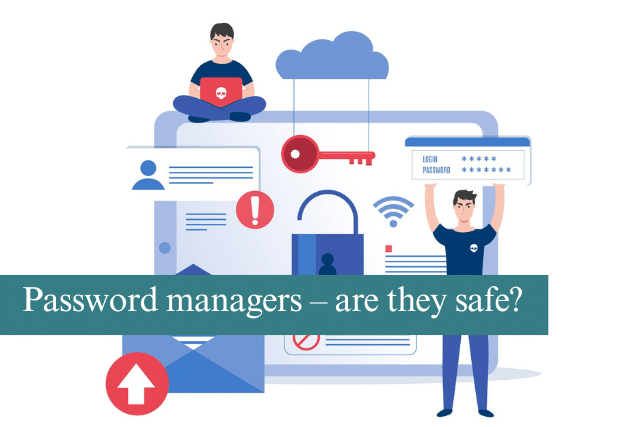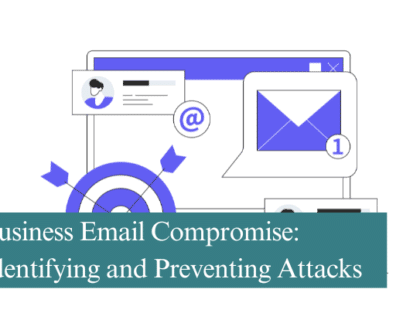
Safeguarding our online presence has become increasingly critical. As cyber threats evolve, using strong, unique passwords for every account is no longer just recommended but essential.
However, managing dozens or even hundreds of passwords can be overwhelming. That’s where password managers come in. But are they safe?
What Is a Password Manager?
A password manager is a software application designed to store and manage your passwords securely. Instead of remembering multiple complex passwords, you only need to remember one – the master password that unlocks your password manager. These tools generate, store, and autofill passwords for you, simplifying the process of maintaining good password hygiene.
There are two main types of password managers:
- Cloud-Based Password Managers: Store your encrypted password vault online, allowing synchronisation across multiple devices.
- Offline Password Managers: Keep your encrypted password vault on a local device, offering more control but less convenience.
Popular password managers include LastPass, 1Password, Dashlane, Bitwarden, and Keeper, among others.
How Do Password Managers Work?
Password managers work by encrypting your stored passwords with a key derived from your master password. This encryption ensures that even if someone gains access to your vault, they cannot read your passwords without the master key. Here’s a simplified breakdown of how they function:
- Password Generation: They create strong, unique passwords that are hard to crack.
- Secure Storage: These passwords are encrypted and stored in a secure vault.
- Autofill: When you visit a website or app, the manager autofills your login credentials, reducing the risk of phishing.
- Synchronisation: For cloud-based managers, your passwords sync across devices, so you can access them anywhere.
Are Password Managers Safe?
The safety of password managers depends on several factors. Let’s evaluate their security aspects:
Encryption Standards
Most reputable password managers use robust encryption protocols like AES-256, which is widely regarded as unbreakable by current technology. This ensures that even if the password vault is intercepted, the contents remain inaccessible without the master password.
Master Password Responsibility
The security of your vault hinges on your master password. If it’s weak or compromised, the entire vault is at risk. That’s why choosing a strong, unique master password is crucial.
Two-Factor Authentication (2FA)
Many password managers offer 2FA, adding an extra layer of protection. Even if someone obtains your master password, they’d need the second authentication factor (like a code from your phone) to access your vault.
Cloud Vulnerabilities
For cloud-based managers, there’s always a theoretical risk of breaches. However, even in such cases, the encryption ensures that your data remains unintelligible to attackers.
Device Security
The safety of a password manager also depends on the security of the devices you use to access it. Malware or keyloggers on your device could potentially compromise your master password.
Advantages of Using Password Managers
Enhanced Security
Password managers encourage the use of unique, complex passwords, reducing the risk of a breach.
Convenience
They save you from the hassle of remembering multiple passwords or resetting forgotten ones.
Protection Against Phishing
Autofill features help you avoid entering credentials on fraudulent websites.
Time-Saving
With autofill and synchronisation, logging in becomes quick and seamless.
Password Health Monitoring
Some managers alert you to weak, reused, or compromised passwords.
Potential Drawbacks
Single Point of Failure
If your master password is compromised, all your accounts could be at risk. Mitigating this involves using strong passwords and enabling 2FA.
Dependence on Technology
A technical issue or outage with the password manager could temporarily lock you out of your accounts.
Target for Hackers
Password managers are attractive targets due to the treasure trove of credentials they hold. Reputable providers invest heavily in security to counteract this risk.
Tips for Using Password Managers Safely
- Choose a Reputable Provider: Opt for password managers with a proven track record and strong security measures.
- Create a Strong Master Password: Use a long, complex, and unique master password.
- Enable Two-Factor Authentication: Add an extra layer of security to your account.
- Keep Software Updated: Regular updates ensure your password manager is protected against new vulnerabilities.
- Be Wary of Phishing Attempts: Avoid entering your master password on suspicious websites or apps.
- Backup Your Vault: In case of a technical issue, having a backup ensures you don’t lose access.
Are Password Managers Worth It?
Despite potential risks, the benefits of using password managers far outweigh the drawbacks for most people. They offer a robust solution to password fatigue and significantly enhance your online security. With proper precautions like a strong master password and 2FA, password managers are a reliable choice for managing your digital life.
Take control of your online security today, if you need some guidance contact us today.
Recommended Posts

Are you making the most of your Microsoft 365 licensing?
4th July 2025


